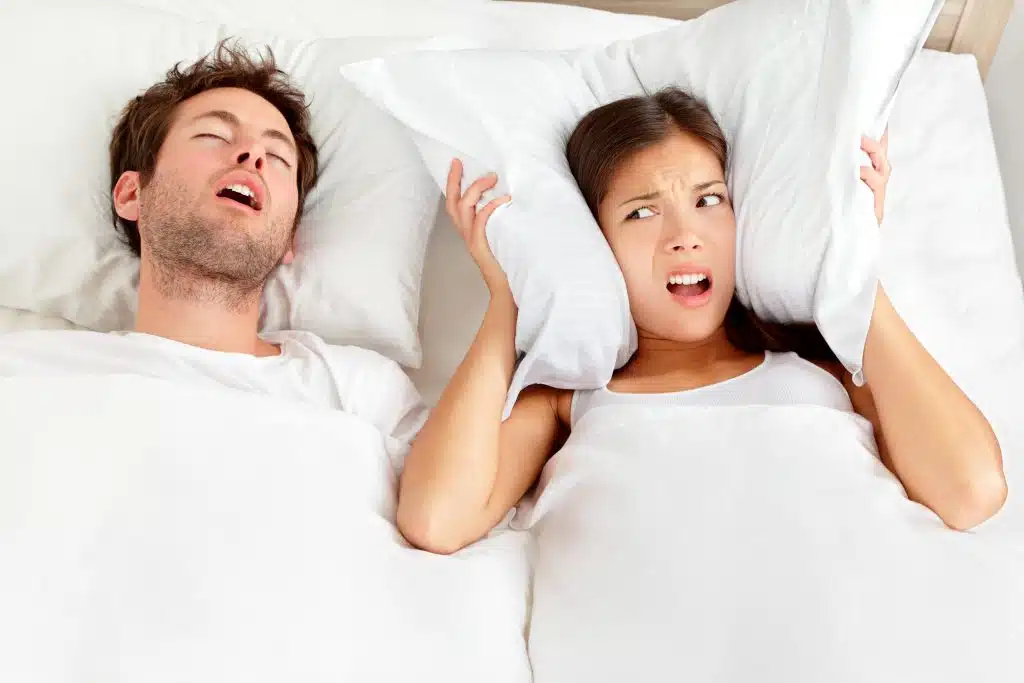Welcome to the San Diego Sleep and TMJ Center, where we strive to improve your sleep quality and overall well-being. If you’re experiencing symptoms of sleep disturbances, it’s important to understand the crucial role of sleep studies in diagnosing and monitoring sleep apnea. Conditions like obstructive sleep apnea (OSA) affect millions of individuals worldwide. Understanding the symptoms, its effects on sleep patterns, potential health risks you need to consider, and lifestyle modifications that help can pave the path towards better sleep health and enhanced quality of life.
What Are The Common Symptoms Of Sleep Apnea?
Sleep apnea often goes undiagnosed, so recognizing its most common symptoms is vital for seeking medical attention.
Here are some of the telltale signs of sleep apnea:
Pauses in Breathing: Sleep apnea causes brief but repetitive pauses in breathing during sleep. These episodes are often witnessed by your sleep partner or identified through a sleep study.
Excessive Daytime Sleepiness: Individuals with sleep apnea often experience persistent daytime fatigue and drowsiness, leading to reduced productivity and potential safety concerns.
Morning Headaches: Frequent morning headaches can be indicative of sleep apnea, as the disorder disrupts normal sleep patterns and oxygen levels.
Difficulty Concentrating: Sleep apnea can cause cognitive impairments, such as trouble focusing, memory issues, and reduced alertness.
Irritability and Mood Changes: Disrupted sleep in sleep apnea can lead to mood swings, irritability, and increased stress levels. OSA increases your risk for depression, too.
What about snoring? While some people with OSA do snore, not everyone who snores has clinical sleep apnea.
How Does Sleep Apnea Affect Sleep Patterns?
Sleep apnea causes disruptions in your body’s natural sleep cycles. When a person with sleep apnea experiences an apnea episode, the brain senses the drop in oxygen levels and briefly wakes them up so that they can resume breathing. While you may not be fully conscious, they prevent you from having normal, restful sleep.
Can Sleep Apnea Cause Daytime Fatigue?
Absolutely. The recurrent interruptions in sleep caused by sleep apnea can lead to chronic sleep deprivation, even if the affected person remains unaware of the awakenings during the night. This ongoing sleep deprivation results in daytime fatigue, drowsiness, and an increased risk of accidents, particularly while driving or operating machinery. It can also hinder the individual’s ability to concentrate, affecting work performance and overall quality of life.
What Are The Potential Health Risks Associated With Untreated Sleep Apnea?
Untreated sleep apnea can have severe consequences on an individual’s health and life expectancy. Some of the known health risks associated with untreated sleep apnea include:
Cardiovascular Incidents: Sleep apnea is linked to hypertension (high blood pressure), which increases the risk of heart disease, stroke, and other cardiovascular problems.
Type 2 Diabetes: Individuals with untreated sleep apnea have a higher likelihood of developing insulin resistance and type 2 diabetes.
Obesity: Sleep apnea and obesity often go hand in hand, and both conditions can exacerbate each other.
Mental Health Disorders: Chronic sleep deprivation from untreated sleep apnea can contribute to the development of depression, anxiety, and other mental health disorders.
Daytime Sleepiness Accidents: Excessive daytime sleepiness resulting from untreated sleep apnea increases the risk of accidents at work or while driving.
Can Lifestyle Modifications Improve Sleep Apnea Symptoms?
Yes, lifestyle changes can play a significant role in alleviating sleep apnea symptoms, especially for mild to moderate cases. Here are some lifestyle changes that may help improve sleep apnea:
Weight Management: Losing excess weight can reduce the severity of sleep apnea, particularly in cases where excess tissue causes airway blockage in the upper neck area.
Sleep Position: Sleeping on your side instead of on your back may help prevent the airway from collapsing during sleep.
Avoiding Alcohol and Sedatives: Using alcohol or sedatives can relax the throat muscles, worsening sleep apnea symptoms. Avoiding or limiting their use, especially close to bedtime, can be beneficial.
Regular Sleep Schedule: Maintaining a consistent sleep schedule, even on weekends, can improve sleep quality and reduce sleep apnea symptoms.
Quitting Smoking: Smoking can increase inflammation and fluid retention in the upper airway, exacerbating sleep apnea. Quitting smoking can have positive effects on sleep apnea and overall health.
Schedule Your Consultation Today
If you or a loved one are experiencing symptoms of sleep apnea or have concerns about your sleep quality, we encourage you to schedule a consultation with the team at San Diego Sleep and TMJ Center. Our experienced sleep dentistry providers can help you arrange a home sleep study and will work closely with you to develop a personalized treatment plan that fits your needs. Call us today!


